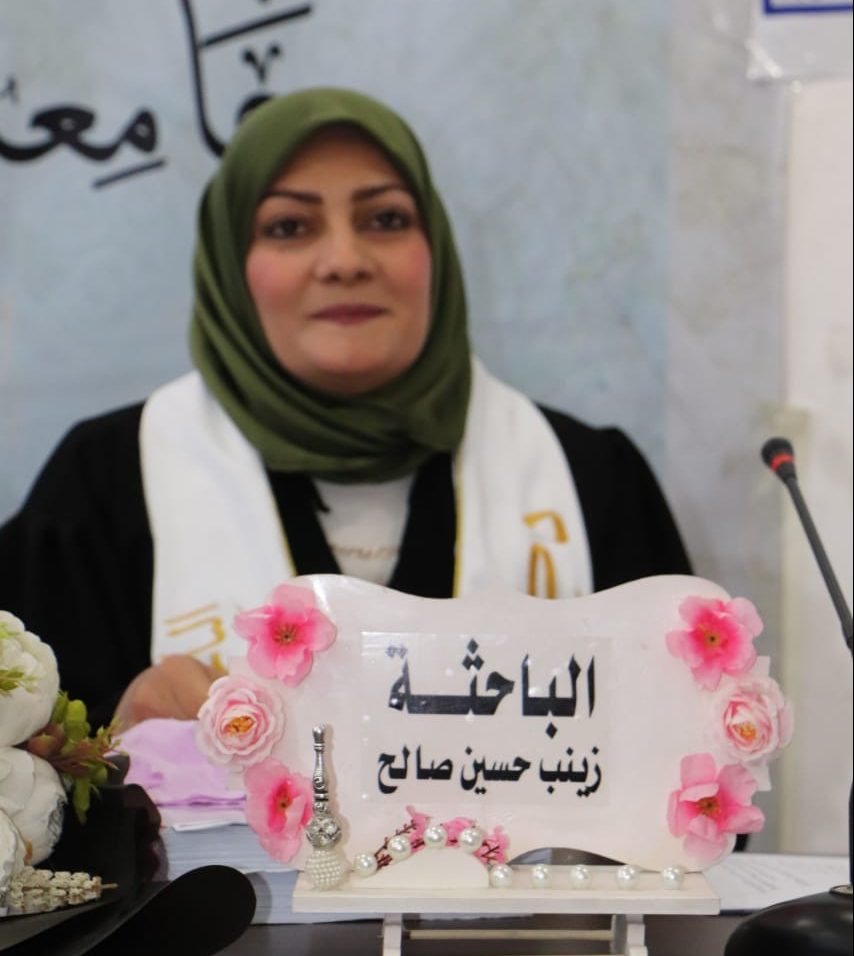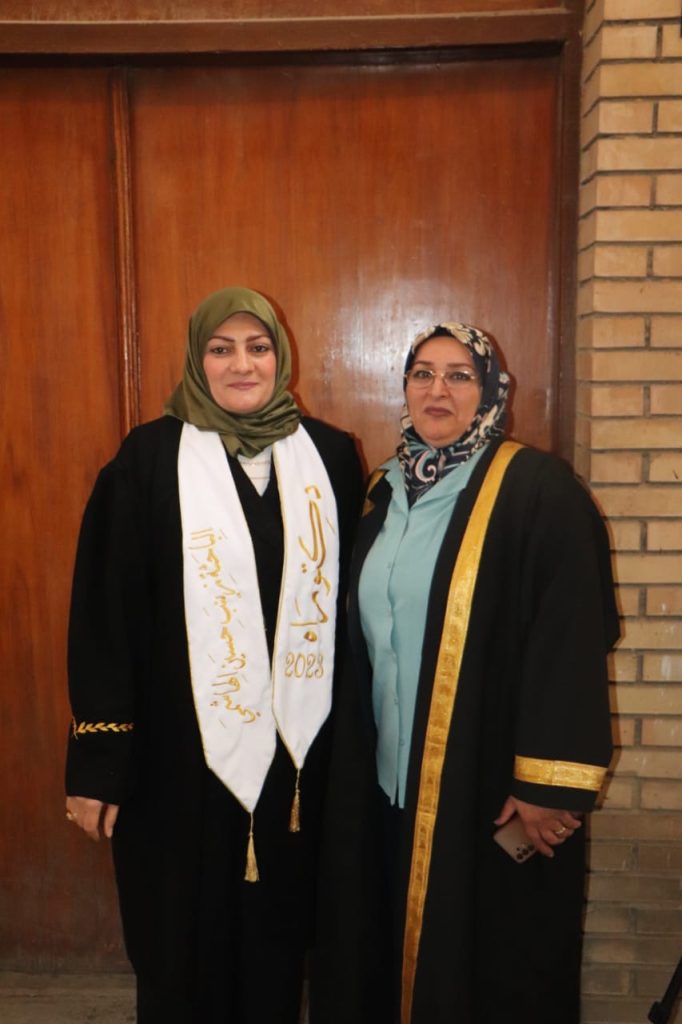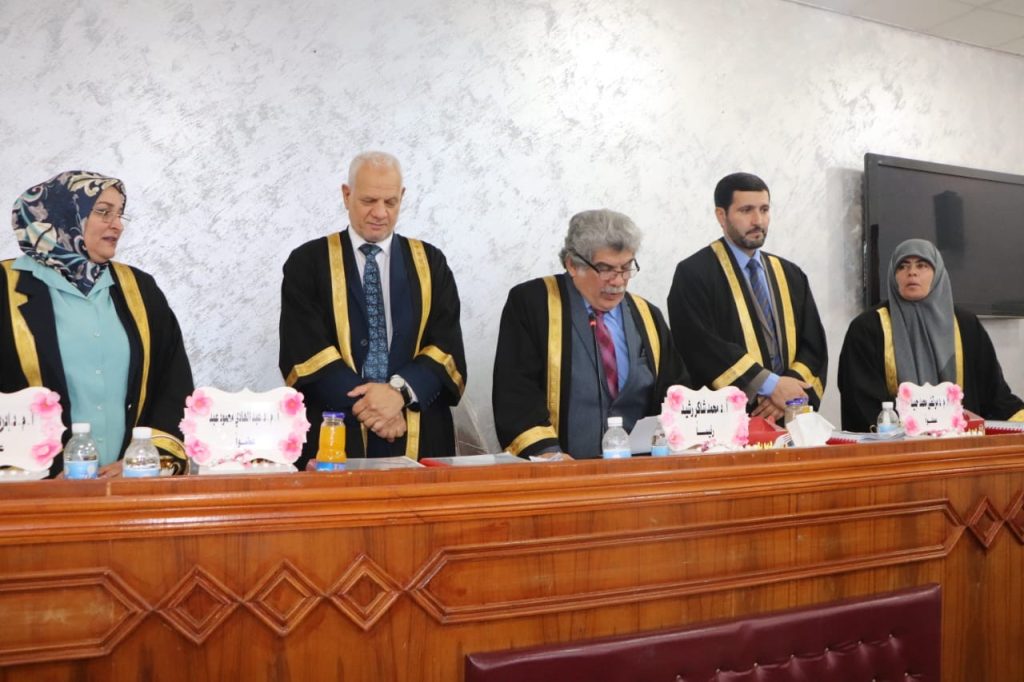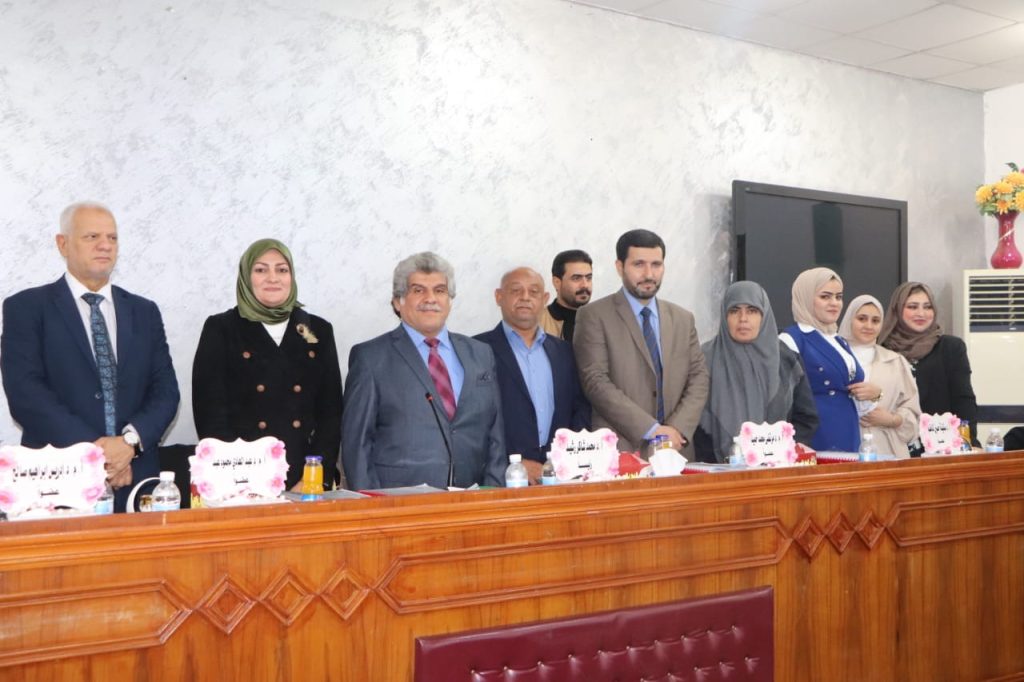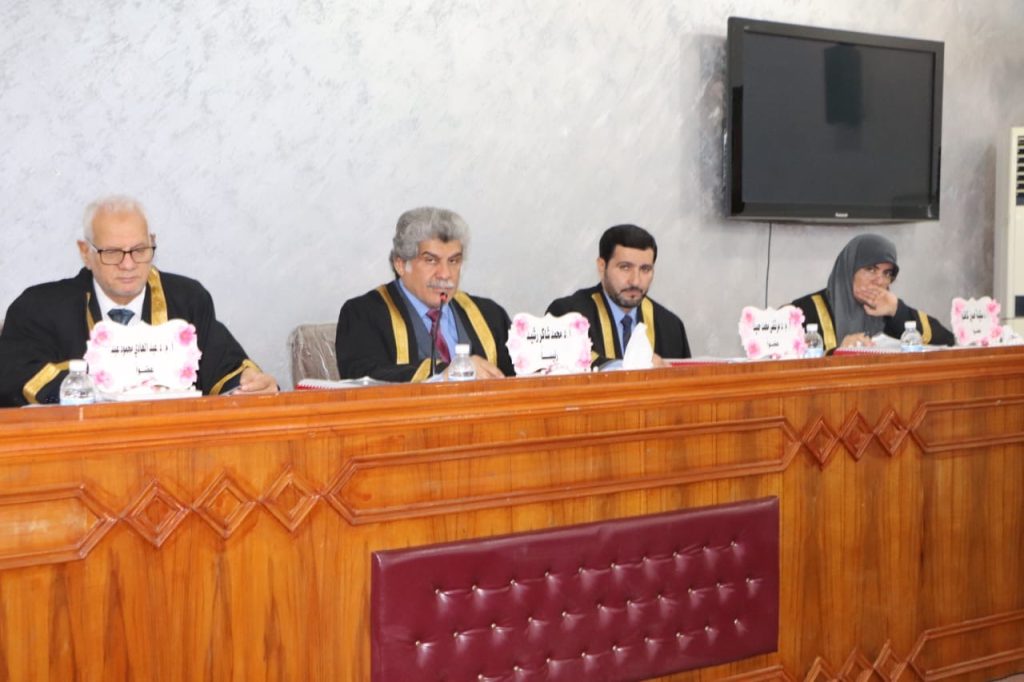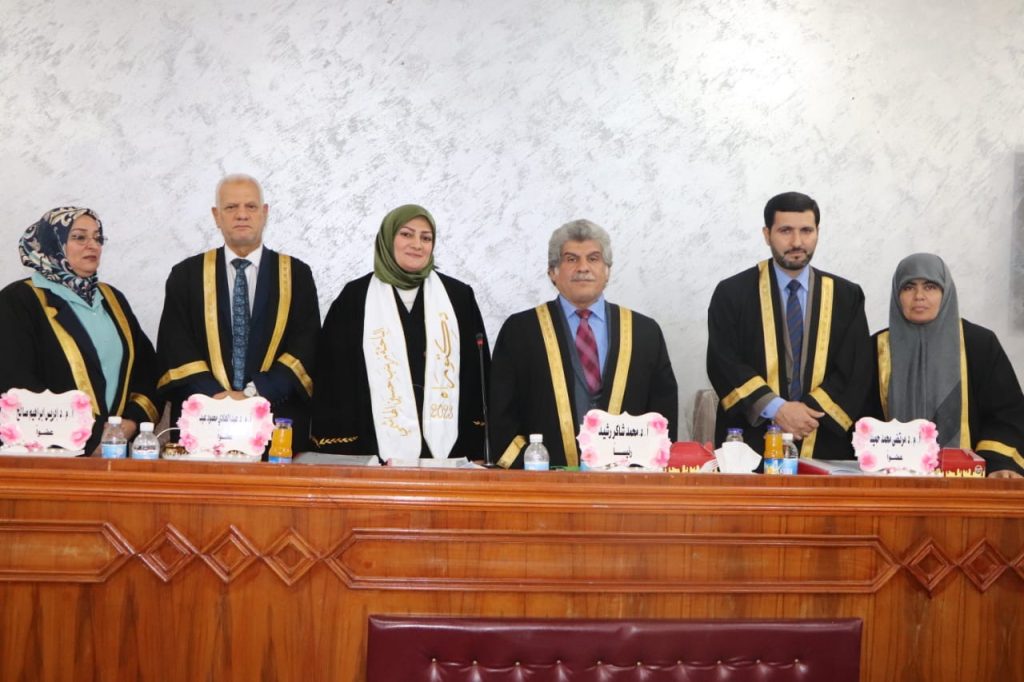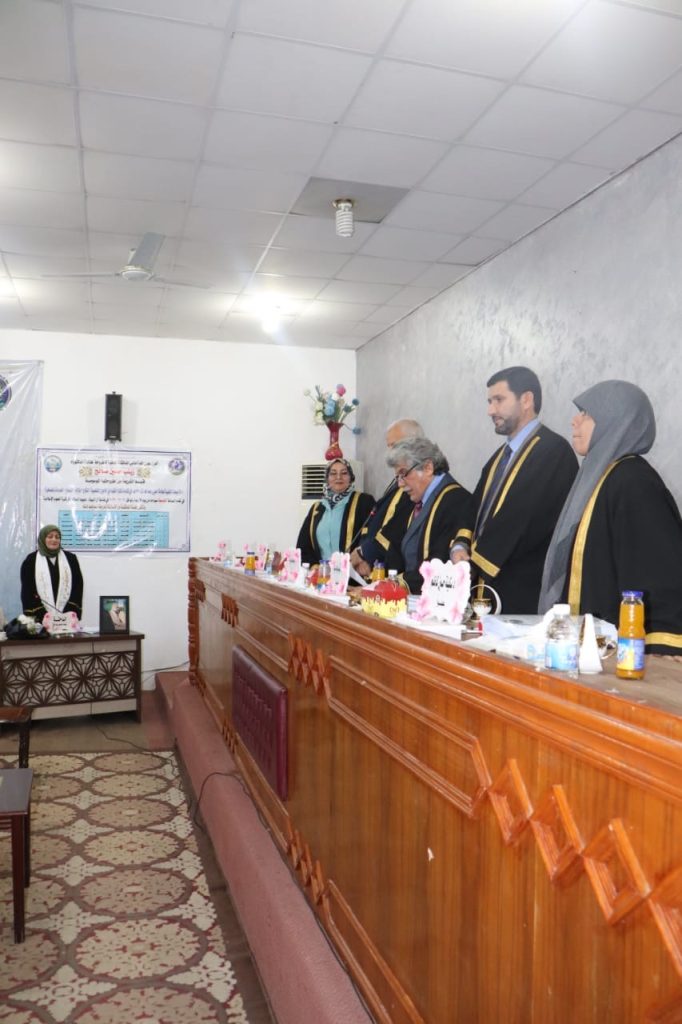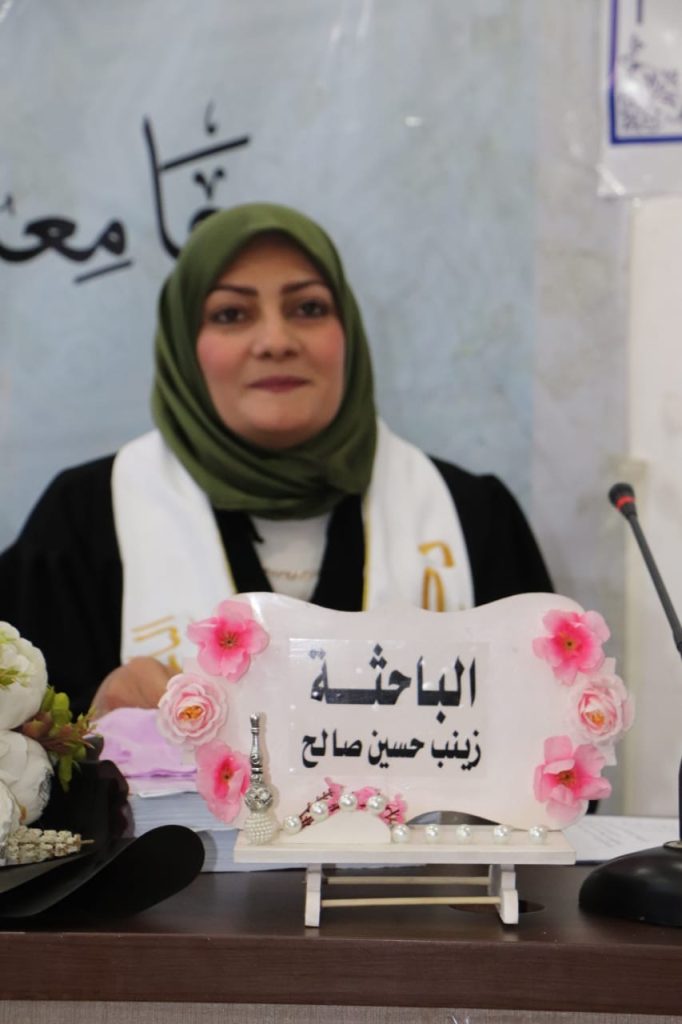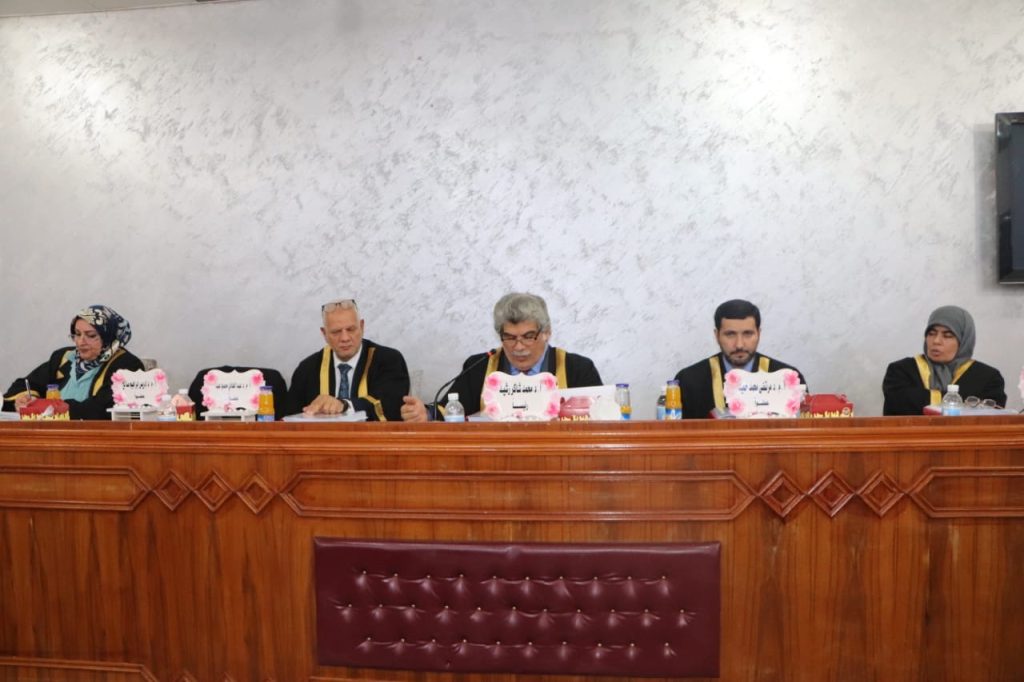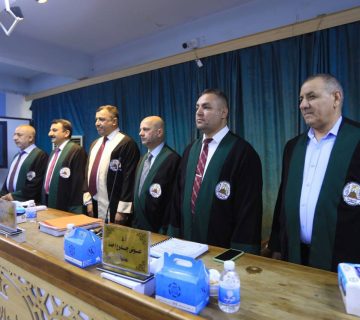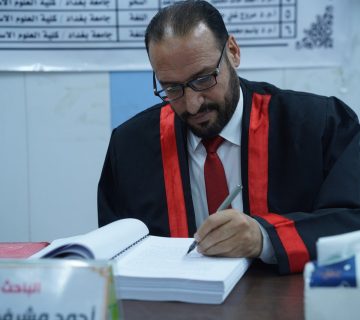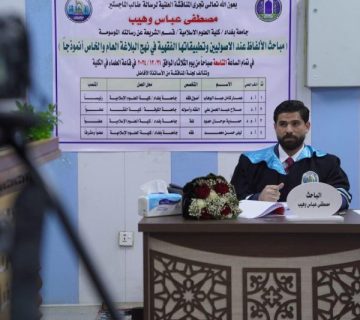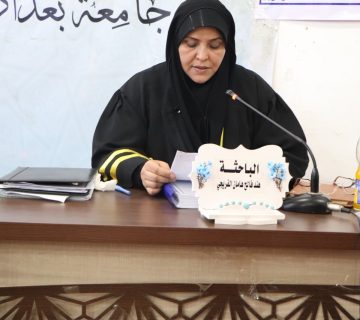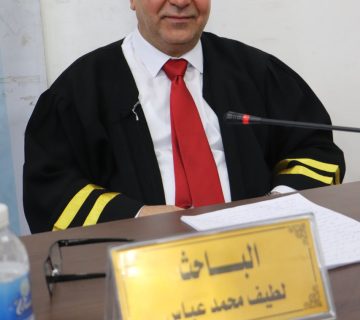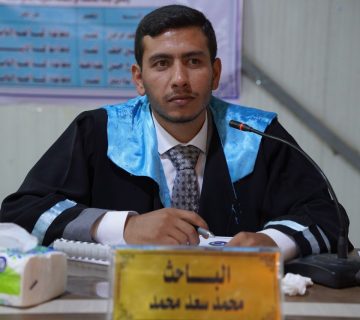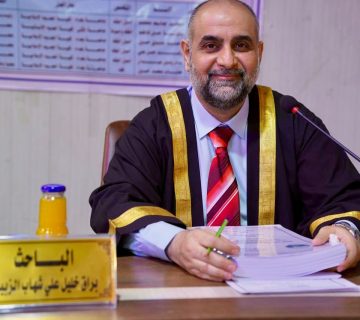The College of Islamic Sciences at the University of Baghdad discussed the thesis titled ‘Jurisprudential Prioritizations of Al-Hilli (d. 726 H) in his book ‘Tadhkirat al-Fuqaha’ regarding Personal Status: Marriage, Guardianship, Breastfeeding, and Prohibitions related to Affinity’ presented by the student Zainab Hussein Saleh from the Department of Sharia in the Al-Al-Bayt Al-Atyab Hall.
The significance of the research lies in its examination of the topic of marriage, which is one of the most crucial and socially foundational subjects addressed by Islamic Sharia, particularly, and other legal systems in general. The Holy Quran, first and foremost, places great importance on the institution of marriage, addressing both major and minor aspects of this essential social institution. The abundance of contemporary jurisprudential developments highlights the scholars’ ability to find appropriate legal rulings for these developments and provide solutions to preserve lineage, honor, and individual well-being, guarding against corruption and adultery.
The subject of marriage is fundamental to the fabric of societal structures, serving as the nucleus of a community and its cornerstone. Therefore, it is imperative to prioritize and give significant attention to this topic, considering it as the core of vital aspects of life.
The thesis yielded a set of results and recommendations, with the most notable being: Al-Hilli is considered one of the eminent scholars of the Imamiyah school in his era due to his unique and intelligent scientific mindset, exemplified by his scholarly debates. Moreover, he contributed to various fields of knowledge, including jurisprudence, its principles, theology, logic, the science of narrators, and mathematics. Al-Hilli stood out for the diversity of his methods and approaches in jurisprudential prioritization. His approach relied on weighing the legislative sources and scientific principles. In cases of conflicting narrations, he prioritized based on what he deemed appropriate according to evidence that aligns with the Quran and the Sunnah of the Prophet. His prioritizations were characterized by objectivity, as he engaged with scholars both within and outside his school, relying on the strongest evidence. Al-Hilli approached his prioritizations and comparisons with neutrality, respecting and appreciating the opinions of all scholars, without bias or superiority, as he judged based on the strength of evidence and reasoning.
The thesis was approved with a satisfactory evaluation by the examining committee, which was chaired by Professor Dr. Mohammed Shaker. Other committee members included Professor Dr. Sukaina Hussein, Dr. Mortada Mohammed, Dr. Idris Ibrahim, and Dr. Abdel Hadi Mahmoud. Dr. Hanaa Mohammed served as a member and supervisor. The defense session was attended by Professor Dr. Nama Dhiab Farhan, the Dean of the College, and his administrative assistant, Dr. Arkan Rahim Jabr, to closely follow the academic proceedings.
The College of Islamic Sciences at the University of Baghdad discussed the thesis titled ‘Jurisprudential Prioritizations of Al-Hilli (d. 726 H) in his book ‘Tadhkirat al-Fuqaha’ regarding Personal Status: Marriage, Guardianship, Breastfeeding, and Prohibitions related to Affinity’ presented by the student Zainab Hussein Saleh from the Department of Sharia in the Al-Al-Bayt Al-Atyab HallThe College of Islamic Sciences at the University of Baghdad discussed the thesis titled ‘Jurisprudential Prioritizations of Al-Hilli (d. 726 H) in his book ‘Tadhkirat al-Fuqaha’ regarding Personal Status: Marriage, Guardianship, Breastfeeding, and Prohibitions related to Affinity’ presented by the student Zainab Hussein Saleh from the Department of Sharia in the Al-Al-Bayt Al-Atyab Hall


